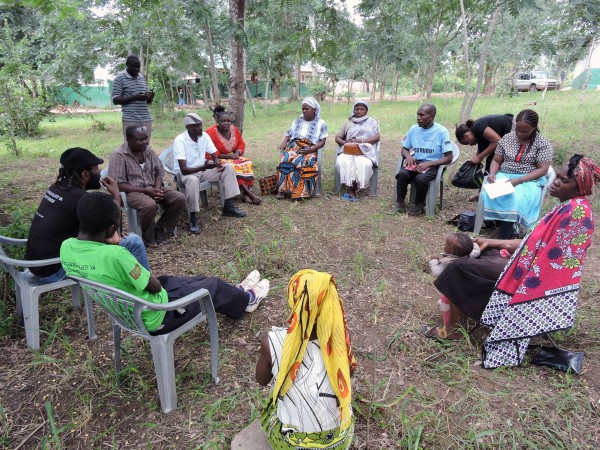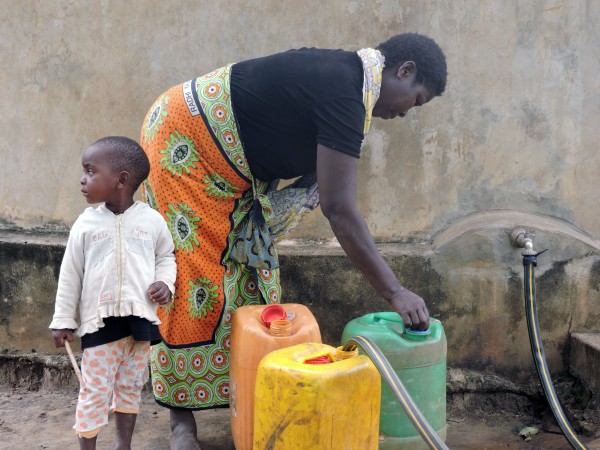The County Budget Tracking Project used a combination of online and offline advocacy and training approaches, to enable citizens to monitor, track and conduct social audits on county governments’ development projects, keeping them on their toes to deliver on their promises.
Twenty-one projects have been effectively scrutinised by the communities in the counties of Kwale, Kilifi and Mombasa with over a million SMS interactions between citizens, county government officials and the project coordinators, Locals Empowerment for Good Governance (LENGGO), and essential offline meetings and activities.
Poor governance is one of the major challenges facing county governments in Kenya. Even after the Constitution of Kenya 2010 introduced a legal framework and institutions to ensure transparency, accountability and public participation in management of public finances, many citizens seem to have developed an apathy towards shaping and monitoring budgets that affect them.
Yet corruption and misuse of funds and public resources are on the rise. Budget tracking and public participation in budget processes have the potential to combat corruption, foster public accountability of government agencies and contribute to judicious use of public funds.
Tracking County Budgets
The clear absence of citizen voices in budget-making processes motivated the membership-based non-government organisation, LENGGO, to set up the County Budget Tracking Project in August 2015. This Making All Voices Count-funded project enabled citizens from Kwale, Kilifi and Mombasa counties to examine and discuss their local development budgets, and hold their elected officials accountable to their promises. It also aimed to strengthen the constitutional processes, particularly the County Budget and Economic Forum (a forum for citizen engagement in the participatory process) by training relevant local civil society organisations (CSOs) and government officials on the tracking processes, including social audits.
The integration of online and offline platforms was central to the campaign including Short Message Service (SMS), WhatsApp groups, Facebook, ‘Digital Bus Education’ an interactive digital platform, animation, graffiti murals, songs, theatre outreach performances as well as more traditional face-to-face meetings.
In particular the SMS platform enabled LENGGO and their audiences to send and receive messages for free. It was also able to segregate users by gender, occupation and location which allowed the group to send bulk tailored broadcast messages to specific target audiences.
What change happened as a result?
Increased citizen engagement
A survey carried out at the end of the project in September 2016 indicated that approximately seventy percent more people had engaged with the annual budget process than at the start of the project.
Citizens have used the SMS updates to stay informed and organise themselves to participate in budget hearing meetings, and to send concerns and questions on county government development programmes. The SMS platform had a database of more than 100,000 users and hosted one million SMS interactions. Also WhatsApp groups and Facebook page conversations reached an estimate of 1.5 million people. Contributing to this online success, LENGGO undertook significant face-to-face training with local communities on the platform’s purpose and how to use the technology to access it.
There has also been an increase in offline community activities such as village hearings, social audits of public projects, participation in budgeting meetings, establishing local working committees and court actions.

Increased local government trust and engagement
The platform’s popularity with local communities also improved the organisation’s reputation in relation to local governments.
Many of the county governments now see LENGGO as valuable partners who can assist them with their work, especially in terms of getting key information out to large swathes of the population in fast, effective and nuanced ways.
Improved service/programme delivery
As a result of strengthened relationships between LENGGO, citizens, county governments and CSO allies, citizens had better opportunities to effectively ‘whistle blow’ on projects that were failing to deliver and hold officials to account. For example, when the citizens raised a concern on lack of drugs in Mutongwe, Likoni and Mbuta health facilities in Mombasa County through the digital platforms - this was voiced through LENGGO to the county government who took action and restocked the health facilities with drugs.
In Kwale County, the Mazeras budget implementation committee tracking construction of the Mazeras Early Childhood Development Centre managed to intervene and halt construction when they realised the work being carried out was substandard. The work was subsequently re-done to an acceptable standard.
We mobilised members of the community, stopped the contractor, took short video clips of the demonstration and photos of the substandard work and posted on several WhatsApp groups to put pressure on the government. In return, a delegation from the county government including the county engineers came and ordered the contractor to re-do the work. The building is now much better. - Herbert Mukoa, Mazeras, budget committee secretary
In Kilifi County, LENGGO trained the Mkwajuni Takaungu Mavueni development group in budget tracking. Member Pili Lwambi states:
After being trained on our rights, social audit, advocacy and budget process, we started mapping existing projects and came across the three that needed immediate attention. Few people were receiving water due to low quality of pipes used. We drafted a petition and followed up with the county government.
In response, new water pipes were replaced and now every household can access water […] we also realised there had been continuous budget allocation to a non-existent dispensary - the Makuhenga dispensary. We mobilised our members through the SMS platform, took photos of the proposed ground and posted them on various WhatsApp groups. In return, the county government officials visited the site and have now started the construction of the dispensary.
Also resulting from this project the three county governments have started to adhere to the notification timetables for the budgeting process and decision-making as required by the law (but which they previously rarely did), which has given people advanced notice of and invitation to essential meetings. This has greatly improved public participation in these meetings.
Future Actions
There is now a legal requirement for county governments to include public participation in local budgeting, which compels governments to conduct more meaningful participation. This is good news for LENGGO and other linked NGOs and CSOs as the relationships they have built with county governments and citizens can be seen to be becoming increasingly valuable.
LENGGO hopes to sustain this project through further developing these relationships with citizens and county government to build the demand for this essential information and their vital intermediary role, whilst working with their allies to secure further funding.
The LENGGO project received the support of £68,615 and was implemented from August 2015 to October 2016.
Related content
-
NEWS | October 20, 2017
TIMBY: Evidence-based reporting of environmental crimes in Liberia -
NEWS | October 23, 2017
Oil Journey: Following the money from oil revenue to improve… -
NEWS | April 6, 2017
Balangay: A mobile app for disseminating disaster information in Philippines -
NEWS | October 18, 2017
Game My Village: Improving and inspiring village participatory planning in… -
PROJECT | November 18, 2015
Tracking of County budgets
